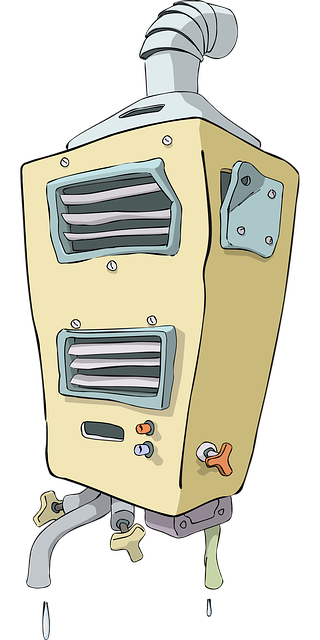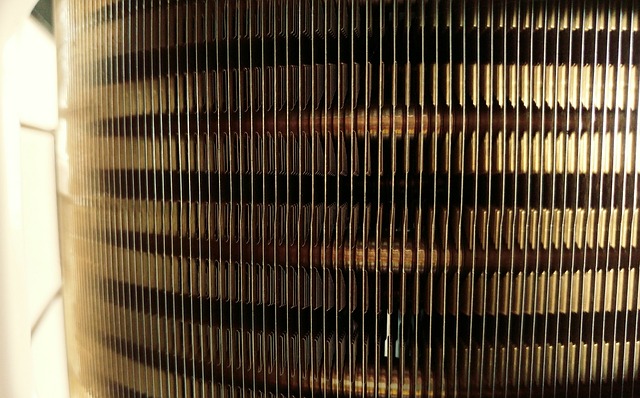Water heater maintenance is vital for preventing costly repairs, ensuring optimal performance, and conserving energy. Key tasks include annual flushing and cleaning, inspecting for leaks and corrosion, checking temperature settings, monitoring pressure relief valves, and cleaning heating elements to extend the lifespan of your water heater. Proper insulation is crucial in colder climates for enhanced energy efficiency.
Water heaters are often overlooked until they malfunction, leading to costly repairs. Preventative maintenance is key to extending the lifespan of your water heater and avoiding unexpected expenses. This article guides you through understanding common water heater issues and their associated costs, outlining essential regular maintenance tasks. Discover tips for efficient care, including optimal temperature settings, flushing, insulation, and professional inspections, ensuring a reliable hot water supply without breaking the bank.
- Understanding Water Heater Issues and Their Costs
- Regular Maintenance Tasks for Your Water Heater
- Tips for Efficient Water Heater Care and Longevity
Understanding Water Heater Issues and Their Costs

Water heater issues can range from minor inconveniences to costly repairs, and promptly addressing them is key to preventing unexpected bills. Common problems include temperature control malfunctions, leakages, rust buildup, and heating element failures. These issues not only disrupt your daily routines but also contribute to energy wastage and higher utility costs. For instance, a leaking water heater can waste hundreds of gallons of water annually, leading to significant financial losses. Similarly, an inefficient heating system can drive up your energy bills. Regular maintenance is the cornerstone of preventive care for these appliances. By scheduling routine inspections and cleaning, you can catch potential problems early on, avoiding major breakdowns that may require costly replacements or repairs.
Understanding typical water heater issues and their associated costs empowers homeowners to prioritize maintenance. Investing time and resources in proactive measures ensures a reliable hot water supply without the surprise of emergency repairs. Water heater maintenance involves checking for corrosion, inspecting connections for leaks, and ensuring proper temperature settings. It’s a simple yet effective strategy to keep these essential appliances running smoothly and efficiently throughout their lifespan.
Regular Maintenance Tasks for Your Water Heater

Regular maintenance is key to preventing costly water heater repairs. Here are some essential tasks to keep your water heater running smoothly:
1. Flush and Clean the Tank: Once a year, drain a few gallons of water from the bottom of your water heater tank. This helps remove sediment buildup, which can reduce heating efficiency and cause premature failure. While flushing, check for any leaks or unusual noises, addressing them promptly to avoid future issues.
2. Inspect Connections and Insulation: Examine the water lines connected to your heater for signs of corrosion, leaks, or loose connections. Tighten any loose fittings and replace any damaged or old pipes. Additionally, ensure the heater is properly insulated, especially in colder climates, to minimize heat loss and optimize energy efficiency.
Tips for Efficient Water Heater Care and Longevity

Regular water heater maintenance is key to preventing costly repairs and ensuring optimal performance. Start by inspecting the tank for any signs of corrosion, leaks, or rust. These issues can lead to serious problems over time, so addressing them early is crucial. Additionally, check the temperature settings; maintaining the right temperature can save energy and extend the heater’s lifespan.
Keep an eye on the pressure relief valve as well. This valve protects the tank from excessive pressure, which can cause damage. Regular cleaning of the heating elements and drain valve is also essential. By removing mineral deposits and sediment buildup, you enhance water circulation and heat distribution, resulting in more efficient operation and longer-lasting equipment.
By implementing routine water heater maintenance, you can significantly reduce the risk of costly repairs and extend the lifespan of this essential appliance. Regular checks and simple care practices, such as flushing and insulating your water heater, can prevent common issues like sediment buildup, corrosion, and temperature control problems. With proper upkeep, you’ll enjoy a reliable hot water supply without breaking the bank. Embrace these maintenance tips to keep your water heater running smoothly and efficiently.
